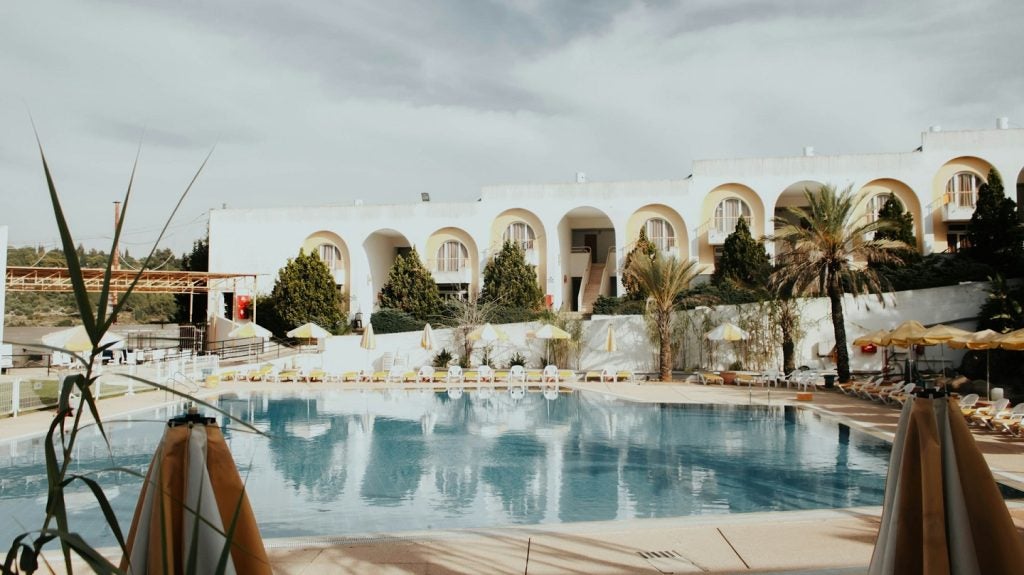
As managing director of the Goring Hotel in London for 37 years, William Cowpe has a solid experience of restaurants and guest expectations. Now retired from day-to-day management, he works as a consultant, overseeing the hotel’s marketing in the US.
During his leadership he initiated many changes at the hotel, one of the most important of which was deciding to use local produce to create a ‘best of British’ dining experience.
Current chef Derek Quelch continues to carry the torch, reviving famous and sometimes forgotten English dishes, such as Eggs Drumkilbo, once a favourite of the Queen Mother. This policy has been successful and popular, winning the hotel several awards.
When did hotel restaurants start focusing on regional food?
The trend towards local produce started about five years ago. At The Goring we started looking at it about seven years ago and decided to start introducing regional food, which for us is British, and an exclusively British menu. For a few years now the style of food on the menu and the vast majority of the ingredients have all come from the UK.
Why did The Goring decide to move to regional produce?
How well do you really know your competitors?
Access the most comprehensive Company Profiles on the market, powered by GlobalData. Save hours of research. Gain competitive edge.

Thank you!
Your download email will arrive shortly
Not ready to buy yet? Download a free sample
We are confident about the unique quality of our Company Profiles. However, we want you to make the most beneficial decision for your business, so we offer a free sample that you can download by submitting the below form
By GlobalDataThe idea was born after discussions with the chef. We decided there was a need for a good restaurant in the city serving top-class British food and The Goring fitted the bill to fill that gap. We were in the perfect position to become a beacon for British food.
How was the transition successfully achieved?
At first we still carried an eclectic mix of cuisine, with British food included on the menu. We then gradually began to make the menus more deliberately English – it wasn’t a sudden change. The restaurant has always been popular and that has continued to be the case.
The success was recognised last year when The Goring was voted the Best Restaurant in London at the Carlton TV Awards. And this year it has been voted the Top London Hotel in the Top 500 Hotels in the World at the Travel & Leisure Awards.
What constitutes a British dish? Which are your favourites and which are the most popular?
There is a wide variety of British dishes on the menu. One of my favourite dishes is the lobster thermidor omelette for the first course, which is incredibly popular with guests. The most popular main dish in the restaurant is traditional, grilled Dover sole.
Does using regional produce limit the variety of dishes?
No, there’s absolutely no loss in variety. And what’s interesting is that when you start exploring regional produce you discover there are more interesting British foods. For example, there are unusual breeds of animals served in many restaurants now, such as several varieties of lamb and the Gloucester old spot pigs.
Are regionally produced goods of higher quality?
I think the quality of food is interesting in itself because there are so many dishes that you can serve. There is a vast range of meat in the UK, which ranks with the best in the world, and these days there is much better traceability of the product. I think it’s great that now we not only put the cut of the meat on the menus but also say where it comes from, which is an indicator of quality.
I also think local food is better because it’s fresher and has not been transported so far. Food is harvested when it’s ripe and can be served on the restaurant table the next day. This is much better than fruit and vegetables that ripen on a plane.
What you also find is that you stick more to the seasons when sourcing fruit and vegetables, so you are eating them in their correct season, rather than produce that comes in all year round.
Is there also a move towards organic produce in restaurants?
No, not really. In the hotel catering world it’s not seen as hugely important at the moment, and you have to consider the cost. The emphasis is on regional rather than organic foods.
Is the breeding or source of regional products important?
Yes, this is enormously important and I also think it makes a difference in the way animals are kept in the pasture and whether good farming methods are used. I think there’s much more care taken in the production of quality regional produce.
Hotels in the country are very lucky in this respect as they can buy locally and know where the produce is coming from. It’s more difficult in London, where you are buying through a central market.
Is it more cost-efficient to source regional produce?
I think it’s the same with any produce; you can always find a spectrum of prices. There are cheap and expensive regional British products like any other produce. It’s down to the individual choice of the kitchen, but at The Goring it’s vital that we have the best produce.
How important are the sustainable and environmental benefits of buying locally?
I think the environment is a big subject to be considered, but it’s not a big consideration in choosing to source locally. Clearly, if there is the added benefit of helping the environment, then it’s a good thing.
Is there also a move towards regional wines? Will British wines follow in the footsteps of British food in popularity?
We know that British wines are becoming better and more popular, but at the moment we don’t stock any at The Goring.
Do you think the public demand for local produce is a passing trend or a long-term shift in expectations?
I think it’s here to stay without a doubt. It’s becoming something that people are increasingly interested in and the communities celebrating British produce are definitely in it for the long term.
I also think there’s a knock-on effect: the more we use British produce, the more support and demand there is for British farming and more farmers will be able to produce.
How important is high-profile support, such as Prince Charles’s campaign for the public to eat mutton?
The support of public figures plays a huge part. Promoting regional produce is good for British farms and good for British cookery. Locally sourced produce is also a good marketing tool because there’s a definite interest from the British public in eating good British food.
Are restaurants offering exclusively regional produce or is there still a mixture?
There is still room on menus and in restaurants for imported food, but the more British and the more seasonal the better. This means we are seeing lesser known fruit and vegetables appear more frequently, such as curly kale and beetroot. At The Goring we aim for our menu to be as exclusively British as possible.







